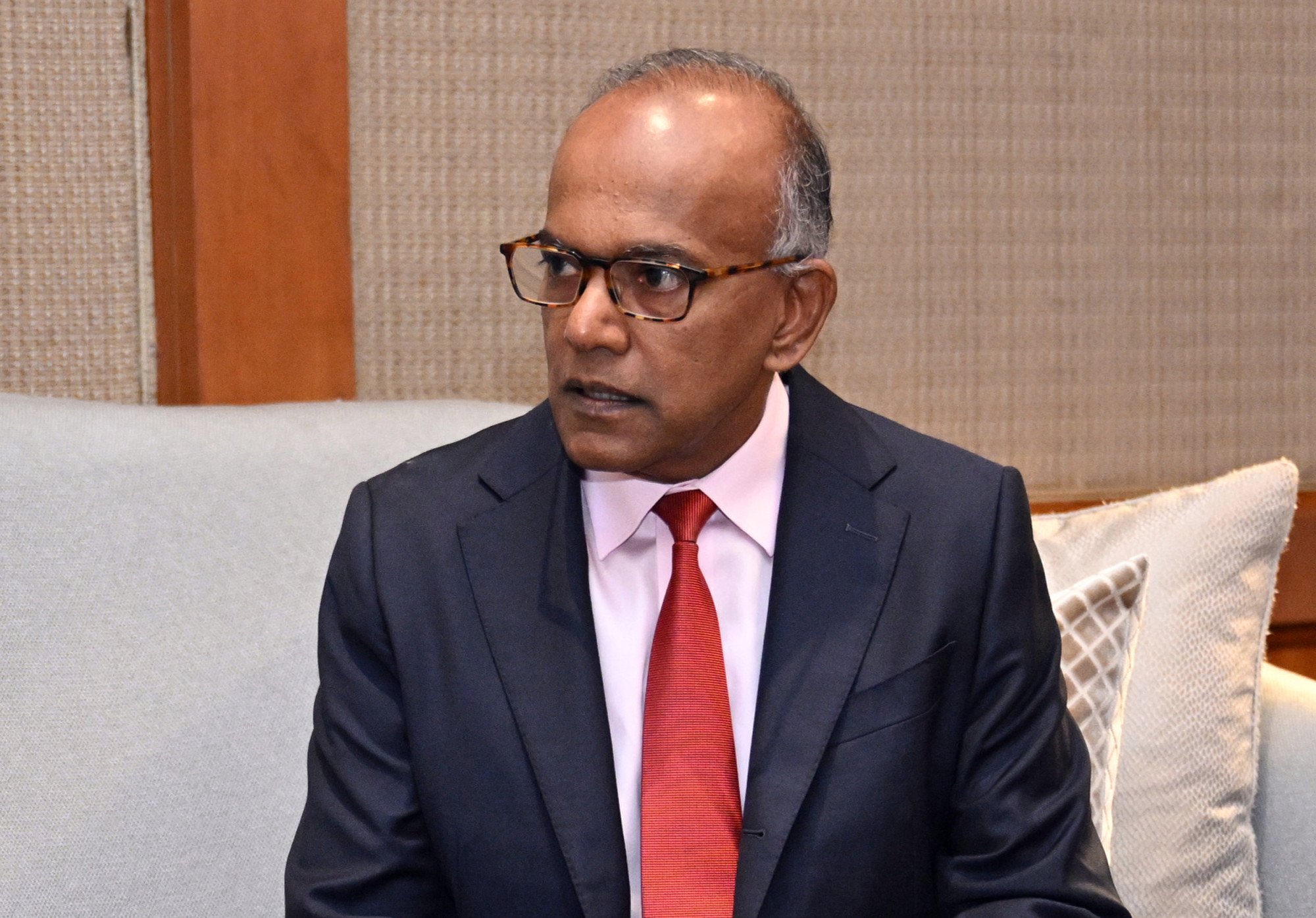Analysts say the tendency of some Asian users to be influenced online by far-right causes – and in some bizarre cases straying into white supremacism – could be increasing in the digital age, with young men among the most susceptible demographic.
“I must admit … once I started, I just kept watching and it kind of shaped how I felt about society,” Ethan, now 28, told This Week in Asia.
Maybe baby: can ‘auspicious’ year of dragon boost birth rates in Singapore?
Maybe baby: can ‘auspicious’ year of dragon boost birth rates in Singapore?
In university, many of his classmates were “resoundingly left” and this had pushed him to “question the state of affairs” and delve deeper into exploring far-right beliefs, he said.
While Ethan has never himself crossed the Rubicon into identifying as a white supremacist, he admitted to developing a hatred towards people of racial minority backgrounds, LGBTQ individuals and feminists, becoming what some analysts have described as “anti-woke”.
Terrorism analysts who spoke to This Week in Asia said that while cases of far-right extremism in Asia have remained relatively low, the numbers could continue to rise as a form of “resisting progressive changes” and “diminished exclusive privileges”.
Munira Mustaffa, managing director of Chasseur Group, an analytical consulting firm specialising in security challenges said young men were at a higher risk of embracing extremist ideologies because of a perceived “loss of privilege” and a “negative polarisation response to progressive politics”.
Will Singapore law to keep serious offenders beyond jail terms infringe on rights?
Will Singapore law to keep serious offenders beyond jail terms infringe on rights?
“An individual’s lived experience is a cumulative one that shapes their political perspectives. The reasons people become extremists or join extremist groups are multifaceted, and these may stem from anxieties or grievances over sociopolitical or economic reasons that erode their sense of self-worth,” she said.
In December 2020, a 16-year-old Protestant Christian of Indian ethnicity was detained for being radicalised by far-right extremist ideologies – the first case of its kind to be dealt with under Singapore’s Internal Security Act.
He had reportedly made detailed plans and preparations to conduct terrorist attacks against Muslims at two mosques in the city state using a machete.
Following the announcement of the case by Singapore’s ISD, Home Affairs and Law Minister K Shanmugam said the teenager was “extremely serious”.
“Violent impulses, I’ve said this many times, are not restricted to any particular racial group or religious group. It can occur among anyone. It’s really a question of being exposed to hate speech and then being influenced by it,” Shanmugam warned, according to a report by The Straits Times.

ISD released a Terrorism Threat Report last year that said terrorist threats to Singapore inspired by far-right extremism overseas suggested the ideology was becoming increasingly diffused.
“Far-right extremist elements often take inspiration from one another in online communities,” the ISD report stated, adding that such threats were often motivated by a variety of conspiracy beliefs and ideologies related to antisemitism, Islamophobia, immigration and racial supremacy.
On the two cases of far-right extremism in Singapore, Susan Sim, vice-president for Asia of The Soufan Group, a global intelligence and security consultancy, said that the teenagers appeared to have gone down a rabbit hole of misinformation and disinformation and developed a fear and hatred of ‘the other’.
Despite being a different ethnicity, some may look past racial differences and buy into “strands” of the white supremacist ideology, said Kalicharan Veera Singam, a senior analyst at the S. Rajaratnam School of International Studies (RSIS).
“Perhaps, [because of] a general ignorance about what the ideology in its entirety stands for, some non-Caucasians might latch on to certain strands of the ideology they find appealing such as xenophobia, racism and homophobia,” Singam added.
The notion of “racial purity” popularised by far-right ideologists in the West is then “aimed back at [people from] European countries and the US”, said Sarwono, who researches online extremism and cybercrimes at Diponegoro University in Indonesia.
This culminates in similar racially charged conspiracy theories and hatred towards white people, who are often referred to as “colonisers”, he added.
Is Singapore ‘warning’ others by hauling up businessman for foreign interference?
Is Singapore ‘warning’ others by hauling up businessman for foreign interference?
‘Manly to fight for the tribe’
There is also an added dimension of gender, observers say. In a commentary in the Financial Times in January, John Burn-Murdoch wrote that “an ideological gap has opened up between young men and women” across countries on every continent.
“In the US, UK and Germany, young women now take far more liberal positions on immigration and racial justice than young men, while older age groups remain evenly matched. The trend in most countries has been one of women shifting left while men stand still,” he wrote, attributing the start of the divide to the #MeToo movement.
In South Korea, the ideological split between men and women is particularly stark, Burn-Murdoch wrote.
“In the country’s 2022 presidential election, while older men and women voted in lockstep, young men swung heavily behind the right-wing People Power party, and young women backed the liberal Democratic party in almost equal and opposite numbers.”
The resistance against other communities – such as racial minorities or LGBTQ individuals – latches on the need to maintain the power and status of men, Sim said.
“Gender studies has a theory about toxic masculinity, that men are raised to believe that it is manly to fight for the tribe. Often it is really about maintaining the power and status of men.”
Connectivity is key even as more Singaporeans eye cheaper life in Johor Bahru
Connectivity is key even as more Singaporeans eye cheaper life in Johor Bahru
Another Singaporean William*, 27, first came across pages promoting motivational content for men that aligned with many traditional views of gender norms when he was in university.
“I was raised a Christian so certain things ‘like men are providers’ are values that resonate with me,” he said. “Later, I also started getting a lot of content ridiculing ‘woke’ people, pronouns and body positivity.”
Certain online users would end up seeing such content because of social-media algorithms, which predict what kind of information they would enjoy based on past interactions and user behaviour, said Nanyang Technological University lecturer Jeremy Sng.
But there is a second “psychological filter” at play too, added Sng, whose research focuses on the psychological and behavioural effects of media use.
“It’s a symbiotic relationship – personal experiences can influence what we seek out online and if we encounter contradictory information we might block it out. But what we encounter online can also influence our beliefs,” he said.
Social media was not entirely “at fault”, however, since there is an interplay between algorithms and users’ own pre-existing biases, according to Sng.
A ‘post-truth’ society
Mustaffa from Chasseur Group said there might be an overemphasis on online environments driving youths towards far-right extremist beliefs.
“The role of socioeconomic anxieties and disenfranchisement in far-right radicalisation have been known to be significant factors and should not be underestimated,” she said.
“Online platforms merely act as conduits or echo chambers that may amplify or accelerate these underlying anxieties rather than being the primary drivers of such radicalisation.”
Young people tend to be the most susceptible to these views, said Singam from RSIS. “People from somewhat marginalised backgrounds in some countries, and those with mental health issues, as evident in the Western cases, might also be vulnerable.”
Young Singaporeans tap services to create ‘genuine connections’ with others
Young Singaporeans tap services to create ‘genuine connections’ with others
“In a post-truth society, some people are more susceptible to creating their alternate reality, including one where they will be welcome to fight alongside white supremacists because their common enemy is someone else,” she warned. “We may think of them as delusional but we cannot dismiss their capacity for violence.”
For Ethan, these right-wing extremist views are now a thing of the past.
“I outgrew this stage eventually. I guess some biases take time to break down and views evolve after new interactions,” he said.
“I realised that I can spend my time on something better than being so seized by issues that take place so far away from my shores.”
Additional reporting by Amy Sood
*Names changed at interviewees’ request


